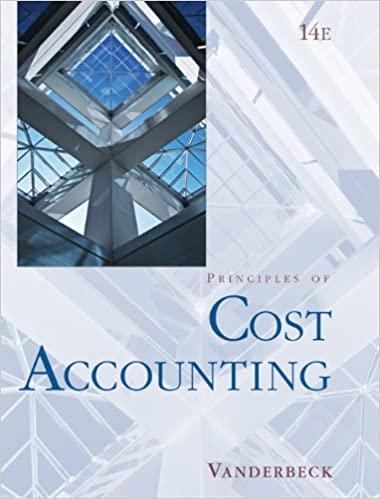Answered step by step
Verified Expert Solution
Question
1 Approved Answer
Which of the following statements about the application of IFRS in accordance with The Conceptual Framework is the most corre Entities that are not expected
- Which of the following statements about the application of IFRS in accordance with The Conceptual Framework is the most corre
-
- Entities that are not expected to continue in the foreseeable future are to prepare their accounts on the net realisable value assumption.
- Entities may change the valuation and measurement of assets provided they disclose the change and its effects in the financial report.
- Entities within the scope of the Corporations Act can choose to apply Australian or International accounting standards when preparing their financial reports.
- Entities may prepare financial statements on a cash flow basis provided that they meet the characteristics of comparability, understandability, timeliness and verifiability.
- Which of the following statements about a departure from IFRS is correct? A. Departure is never permitted.
- Departure is permitted when the financial statement would be unfairly presented because of compliance with IFRS.
- Departure is permitted when management and the external auditor agree on the departure.
- Departure is permitted when the disclosure of the adopted accounting policy is detailed in the notes.
- The accountant of Scrub and Shine Ltd identified an aggregate charge of $500 000 (comprising 126 various supplier invoices) of advertising expense for a new microfibre cloth within the entitys financial records. Should the accountant present this item separately in the financial statements?
- Yes, the aggregate value of this advertising expenditure is material.
- Yes, details of all transactions should be disclosed to assist users make fully informed decisions.
- Possibly. This would depend on the size and nature of the advertising expenditure relative to other items disclosed in the financial report.
- No, the individual values of the invoices comprising this amount are immaterial. The disclosure requirements do not apply to immaterial items.
Step by Step Solution
There are 3 Steps involved in it
Step: 1

Get Instant Access to Expert-Tailored Solutions
See step-by-step solutions with expert insights and AI powered tools for academic success
Step: 2

Step: 3

Ace Your Homework with AI
Get the answers you need in no time with our AI-driven, step-by-step assistance
Get Started


